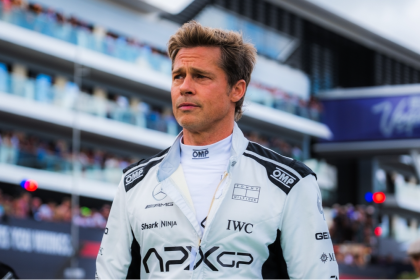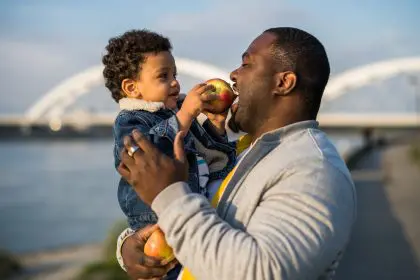A father’s presidential pardon ignites debate on systemic inequities

The weight of parental protection
The profound question “What about my child?” resonates with millions of parents across America, transcending social, economic, and cultural barriers. This universal parental instinct, driven by an overwhelming desire to shield children from harm, has been thrust into the national spotlight following President Joe Biden‘s controversial pardon of his son Hunter Biden. The decision has exposed the deep disparities in American society regarding how different families can protect their children from the challenges life presents.
A father’s power vs. systemic barriers
The pardon of Hunter Biden shines a light on an unfortunate truth: while some parents—especially those with power—can use their influence to shield their children from the consequences of their actions, others are left without such privileges. President Biden’s decision to grant clemency to his son is seen by many as a demonstration of a father’s love, but it also starkly contrasts with the reality faced by countless other families who have no access to the same resources or connections. This disparity underscores the profound differences in how justice is applied, depending on one’s social and economic standing.
While President Biden may have been acting from a place of personal attachment, his actions inevitably raise questions about the fairness of the system. For the average American parent, who lacks the political clout or financial resources to protect their child, the idea of using such power to intervene in a legal situation seems like a distant fantasy. Many are left wondering: What about my child? Can I protect them in the same way?
The evolution of understanding
The Hunter Biden controversy also reflects a broader shift in societal attitudes toward justice and rehabilitation. In his early years as a politician, Joe Biden supported tough-on-crime policies, including strict drug laws that disproportionately affected marginalized communities. Now, as a father facing the reality of his own son’s struggles with addiction and legal issues, Biden’s stance has evolved. His decision to pardon Hunter reflects a growing recognition of the need for empathy and understanding, as well as a shift toward treating addiction as a public health issue rather than a criminal one.
This personal transformation is emblematic of the larger, ongoing conversation about how we as a society approach justice. For many parents, it represents a turning point—a time to reconsider how the law should treat families, particularly those facing challenges like addiction, mental health struggles, and economic hardship. There is a growing acknowledgment that the law often fails to protect the most vulnerable, and that some children, like Hunter Biden, are afforded privileges others could only dream of.
Voices from the margins
While Hunter Biden’s story has dominated national headlines, millions of parents across the country, particularly those from marginalized communities, face daily struggles in trying to secure a better future for their children. These parents are fighting battles in an environment where the odds are stacked against them. Their efforts to protect their children are often thwarted by systemic barriers that perpetuate inequality and injustice.
For these families, the challenges are multifaceted and deeply entrenched. Educational disparities prevent many children from having access to high-quality schooling, limiting their opportunities for upward mobility. Parents who live in low-income areas often lack the resources to send their children to well-funded schools, and the cycle of poverty continues.
In addition to educational challenges, economic barriers prevent access to essential services such as healthcare, mental health support, and legal representation. Families who cannot afford these services are at a severe disadvantage when it comes to addressing their children’s health and well-being. Without access to proper medical care or legal counsel, parents find it almost impossible to protect their children in the same way that wealthier families can.
The path to systemic change
The pain of watching a child struggle, especially when faced with an unfair system, has the potential to spark a movement for change. Parents from all walks of life can relate to the deep desire to protect their children, regardless of their socio-economic background. The growing sense of injustice surrounding these disparities has spurred a nationwide call for reform, urging the government to address systemic inequalities that prevent all parents from being able to protect their children effectively.
A key aspect of this movement is the push for reforms in criminal justice policies. Advocates are calling for fairer sentencing guidelines, especially for nonviolent offenses, and a more humane approach to those dealing with addiction. In addition to criminal justice reform, efforts are underway to expand access to education and healthcare, ensuring that all families have the resources necessary to protect and nurture their children.
Furthermore, providing better support for families facing addiction challenges, mental health issues, or economic hardship is crucial in addressing the root causes of societal inequities. The desire to protect one’s child should not depend on one’s bank account or connections, but on a system that is designed to offer equal protection under the law, regardless of social status or wealth.
Looking toward solutions
While the question “What about my child?” remains one of the most pressing concerns for many parents, solutions to these inequalities are within reach. Advocates for systemic change are focusing on several key areas to create a more equitable society:
- Implementing fair sentencing guidelines: Reforming the criminal justice system to ensure that those convicted of nonviolent crimes, particularly those related to addiction, receive fair and appropriate sentences.
- Expanding access to rehabilitation programs: Providing more opportunities for individuals and families to access affordable rehabilitation programs, especially for those grappling with addiction issues.
- Providing support systems for struggling families: Ensuring that every family, regardless of income, has access to essential resources like healthcare, mental health services, and educational support.
- Addressing systemic barriers in education and healthcare: Working toward a more equitable distribution of resources, so that children from all backgrounds have the same opportunities to succeed.
The road to these solutions will not be easy, but the movement for change is gaining momentum. By addressing the systemic inequalities that affect so many families, society can take significant strides toward ensuring that every parent, regardless of their background, can answer the question “What about my child?” with confidence and hope.
Conclusion
The controversy surrounding Hunter Biden’s pardon has exposed the stark disparities in how the American justice system protects children, revealing a deeply entrenched inequality in society. While some parents have access to the power and privilege necessary to shield their children from harm, others are left fighting against insurmountable odds. But as the nation begins to grapple with these inequities, a movement for reform is emerging, driven by the universal parental instinct to protect one’s child. It is this shared experience that has the potential to spark meaningful change, ensuring that every family, regardless of status, can offer their children the protection they deserve.















